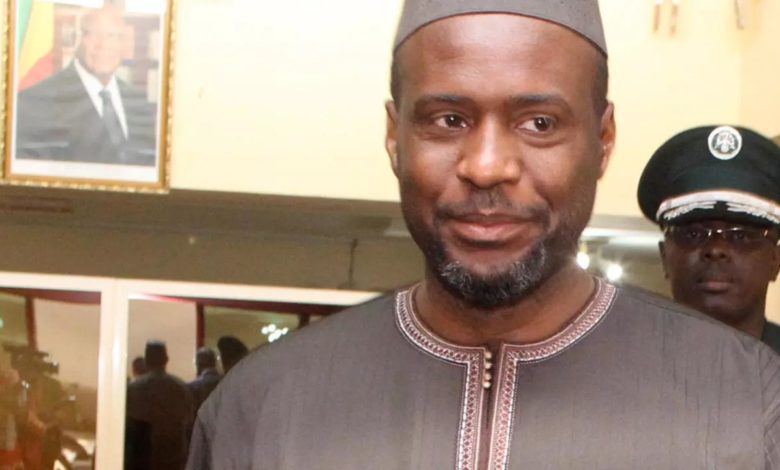Former Malian PM Worried Over Commercialisation Of Abductions In The Sahel

In a recently published opinion piece, former Malian Prime Minister, Moussa Mara, has expressed disquiet about the security situation in the country, especially the frequency of hostage-taking and demands for ransom, which have become the stock-in-trade of jihadists in the Sahel.
According to Mara, “Several questions could be raised concerning the recent liberation of hostages, some in connection with their geopolitical actions or their implications on the socio-political negotiations which these actions could bring about between the government of Mali and the Groupe de Soutien a l’Islam et au Musulmans (GSIM) – Group of Support for Islam and Moslems.”
The Malian politician adds that another concrete point that is convenient to admit is the possibility that at this stage, there is an opening towards the industrialisation of hostage-taking in Mali and the specialisation of actors within the network as was the case at the beginning of the 2000s. He estimates that this perspective would profoundly weaken Mali and all other Sahelian nations, clearly threatening the possibilities for peace and reconciliation.
“This subject merits that we reflect on it since it has never been this veritably presented, since questions of hostages concerned essentially westerners until just recently. This being rare, it is possible that potentially important national targets replace westerners, thus moving the question to grand banditry and the professionalisation of actors based on the price paid to obtain the freeing of persons abducted,” the former Prime Minister declared.
He further noted that the recent liberation of several hostages in the Sahel, including Soumaila Cisse, a top Malian political figure, in exchange for the liberation of several hundred presumed terrorists and the payment of several billions of FCFA in ransom money, has provoked a big controversy within the Sahelian populations and the western media sphere.
“Some think that the liberation of hostages, however important it might be, had been very seriously monetised. They severely criticize the efforts consented for their liberations and their probable consequences in terms of destructions, attacks or the taking of hostages because of the personalities and terrorists freed and the important means that the terrorists obtained.
“Others think that it is normal to make efforts to obtain the liberation of hostages because of the emotional price this raises and equally because human life has no price. Each of these positions is defensible and, as a result, polemics and debates will increase with as much vehemence that the stakes would be heavy in terms of Sahelian nations such as Mali which have several other challenges to face,” Mara said.
He argued that it is important for the Malian authorities to define the rules to follow concerning the eventual liberation of national hostages. These rules, he said, must be established with the principal objective of rendering null and void the merchant value of Malian hostages.
“It is only in that way that the temptation to abduct citizens would be reduced. In this perspective, certain principles must be affirmed and above all observed. Never paying a ransom is a principle to be instituted. The payment of ransom is the prime factor of encouragement in the taking of hostages,” he suggested.
“It is not conceivable to use public resources in an action so counterproductive as the liberation of hostages. Never releasing terrorists having blood on their hands should also constitute a principle to be respected. If the lives of all citizens have the same value, it is difficult to accept the release of the assassin of a citizen to obtain the liberation of another one.”
Moussa Mara urged countries within the Sahel region to work on the quality of negotiators by giving the pride of place to religious leaders as well as local traditional authorities and nationals.
“Within the context of possible negotiations, we must fix the rules which would guide the actions of negotiators and other intermediaries such as fixing the quotas of persons who can be freed in relation with the eventual hostages and in relation to their symbolic importance.
“The established rules must be made known to the citizens, and in particular those who could be the targets of abduction. It is necessary to warn the civilians, the politicians and other personalities against travelling to the risky zones when duty does not oblige them to do so,” the former Prime Minister proposed.
He warned Sahelian states that powerful countries sometimes have double standards by acting differently from officially recognised principles. To this end, he advised that important efforts and massive means are employed to obtain the liberation of a hostage because that has a significant socio-political impact on their leaders.
“The foundations and the stability of these states are not in any way threatened by this phenomenon and this is otherwise different for countries such as Mali. This is why it is highly desirable that nations like Mali must do something to dry up the sources of financing of terrorism in their territories.
“It is also indispensable for them to act in this domain to avoid the frustration of one segment of the population who may perceive some of the efforts towards the liberation of hostages as exorbitant. This would justify the taking of strong measures that would contribute to hemming in the inclination by terrorist groups and networks of profiteers gravitating around them,” he concluded.
Support Our Journalism
There are millions of ordinary people affected by conflict in Africa whose stories are missing in the mainstream media. HumAngle is determined to tell those challenging and under-reported stories, hoping that the people impacted by these conflicts will find the safety and security they deserve.
To ensure that we continue to provide public service coverage, we have a small favour to ask you. We want you to be part of our journalistic endeavour by contributing a token to us.
Your donation will further promote a robust, free, and independent media.
Donate HereStay Closer To The Stories That Matter




